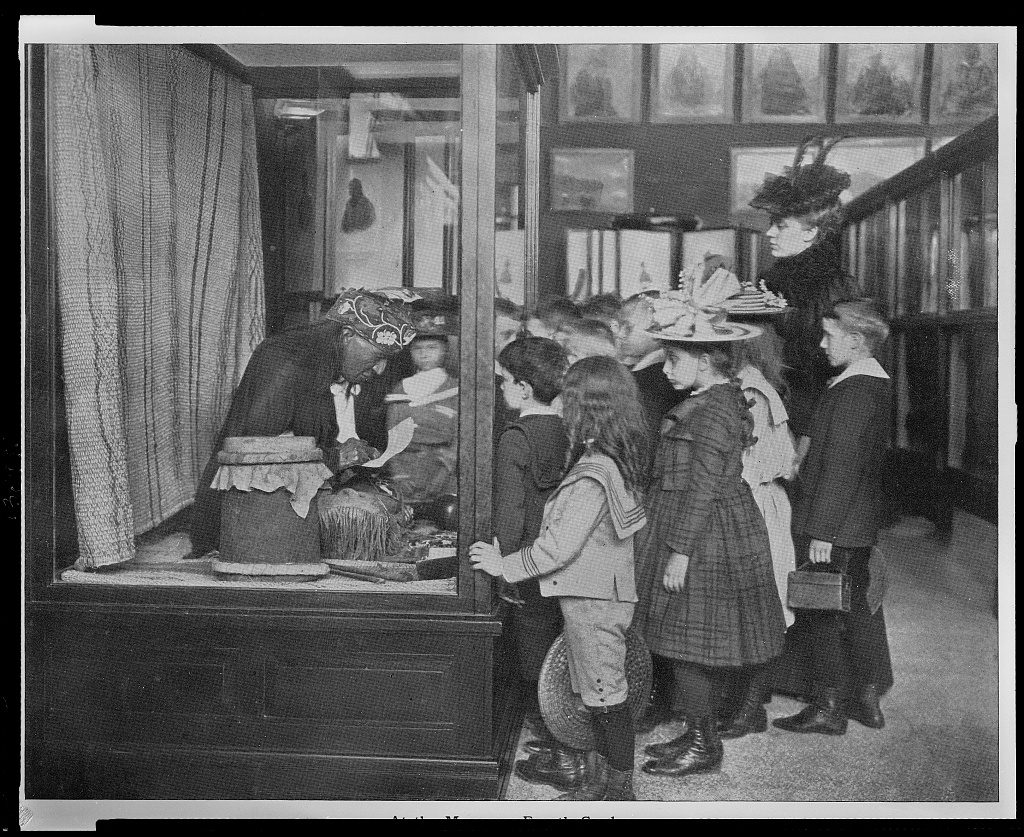Every year since 1977, May 18 has been recognized as International Museum Day. On this day, participating museums plan creative events and activities related to the International Museum Day theme, engage with their public, and highlight the importance of the role of museums as institutions that serve society and its development. As educators, how can we incorporate all that museums have to offer into our classrooms?
Learn more about the Smithsonian Institution, considered to be the “nation’s museum,” which comprises 19 museums and 129 affiliate museums—including the National Zoo and the National Air and Space Museum.
This unit asks students to focus on one issue as it applies to a novel. Working alone or with a partner, students create artifacts in a variety of genres for a museum exhibit that will demonstrate important facts about the research topic and its significance to viewers.
Visit a museum or art gallery (either online or in person) with children and teens, helping them find inspiration for a story based on a piece of art that they particularly enjoy or relate to. Simply find a picture that tells or suggests a story. Then encourage children or teens to make a list of words and ideas about the image before writing a creative story that explains what is happening in the image . . . and beyond.
In this lesson plan, students become active archivists, gathering photos, artifacts, interviews, and stories for a museum exhibit that highlights a decade in their school’s history.
Even if you can’t visit in person, make sure to visit online museum exhibits. There is so much to learn and see!
Curious about the NCTE and Library of Congress connection? Through a grant announced by NCTE Executive Director Emily Kirkpatrick, NCTE is engaged in new ongoing work with the Library of Congress, and “will connect the ELA community with the Library of Congress to expand the use of primary sources in teaching.” Stay tuned for more throughout the year!
It is the policy of NCTE in all publications, including the Literacy & NCTE blog, to provide a forum for the open discussion of ideas concerning the content and the teaching of English and the language arts. Publicity accorded to any particular point of view does not imply endorsement by the Executive Committee, the Board of Directors, the staff, or the membership at large, except in announcements of policy, where such endorsement is clearly specified.

